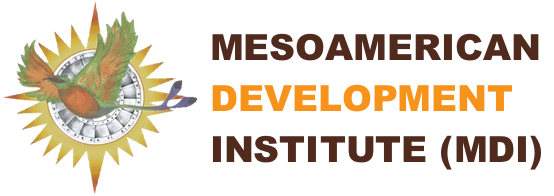In the new text book, Biodiversity Conservation in Agroforestry Landscapes: Challenges and Opportunities (published by the University of Chile), the editors cite the increasing rate of biodiversity loss, and recent international agreements to address this concern, including the UN Convention on Biological Diversity and its Strategic Plan for Biodiversity 2011—2020. Within this plan, areas under agriculture and forestry are managed managed sustainably—plantations are being requested to provide additional services besides the production of commodities, including ecological services for maintenance of native species and biological diversity. Within this framework, the editors have reviewed the biological, social and economic conditions under which plantations can be enhanced to support native biodiversity, and compiled examples from different plantations, regions, and ecological processes, in an attempt to inform policy makers, managers and scientists as well.
MDI and its research collaborators (University of Massachusetts and US Forest Service) are pleased to have contributed a chapter on “Community-Based Agroforestry Initiatives in Nicaragua and Costa Rica” in this important volume.
Our experiences in developing forest friendly processing—solar/biomass drying that eliminates the use of firewood for industrial drying of coffee—along with biodiversity friendly Integrated Open Canopy (IOC) production for coffee and biofuels, have resulted in MDI and its partner, Fair Trade Cooperative COMISUYL, being selected as co-managers of Pico Pijol National Park in Yoro, Honduras. The co-manager designation with the Honduran Forest Service (ICF) and the five municipalities that border the park has been made to support the implementation and expansion of our Café Solar® sustainable model of coffee production in an effort toprotect the park and its watersheds that provide the drinking water for the municipalities.
We look forward to implementing and expanding this important model with support from our Café Solar® alliance partners of roaster/distributors and our growing base of coffee lovers who can participate in this new rural development model designed to protect forest habitat while increasing revenues and competitiveness for the small producers of Cooperative COMISUYL.
Expansion of Coffee Production is Severely Impacting Sensitive Forest Habitat throughout Central America
With increasing demand for high-quality coffee, coffee production is rapidly expanding Central America. This region is now the world’s second largest producer (after Brazil) with Honduras number one in production. As coffee production increases, forests are being impacted in the following two ways:
- High altitude forests, a key to water resources and critical habitat supporting the regions biodiversity, are being clear cut and planted for coffee.
- Increased coffee production demands more firewood for drying the harvest in mechanical dryers. An area of forest equivalent to the total area of certified shade coffee is lost each year to supply the wood for the highly energy-intensive drying process.
This double jeopardy is putting tropical forests at risk—forests that are critical to abating climate change with their vast reserves of sequestered carbon. As only roughly 2% of forests are protected under conservation, and coffee can represent nearly 38% of the agricultural landscape, forestry experts and policymakers are looking to address these issues through the creation and expansion of our alternative model that minimizes coffee production’s threat to forest habitat.
Together, with your support for Café Solar®, we are creating a new model—use of renewable energy instead of burning wood; facilities operated by local youth and managed by women; and the introduction of forest-friendly Integrated Open Canopy™ (IOC) production for coffee and biofuels.
Button Text






